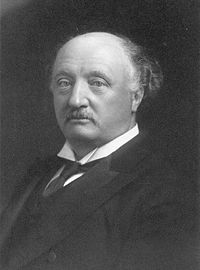Bible Knowledge Graph
John Stainer
- Entity ID:
- john-stainer
- Long Name:
- Stainer, John, 1840-1901
- Short Name:
- John Stainer
- Disambiguation String:
- English composer and organist
- Entity Type:
- person
- Entity Subtype:
- author
-

- Wikipedia
- Summary:
-
Like many English composers, Stainer was trained as a choirboy and grew up in the tradition of English cathedral music. He served as university organist at Oxford, where he received bachelor and doctor degrees in music. As organist of St. Paul's Cathedral in London, he restored the choral program there to excellence and exerted a wide influence toward the improvement of church music throughout England. He was also a professor at the Royal College of Music, where he continued to teach after poor eyesight ended his career at St. Paul's.
Many of his anthems long enjoyed wide acceptance. Stainer was a scholar as well as a composer. He wrote a book on the music of the Bible and published an important anthology of early fifteenth-century music. He also produced an excellent manual on organ playing, as well as several theoretical works. He was a man of sincerity and integrity, and he exercised a lasting influence for good in the realm of church music.
Stainer's output of sacred music was extensive, including the Passion cantata or oratoris, The Crucifixion (1887), the Sevenfold Amen and numerous hymn tunes, including "Cross of Jesus", "All for Jesus" (both from The Crucifixion), and "Love Divine". His evening canticles ( Magnificat and Nunc dimittis) are still occasionally performed, and the anthems "How beautiful upon the mountains" and "I saw the Lord" are widely known.
The Crucifixion is one of the few major works of his that is still regularly performed. He also made a lasting contribution to the music of Christmas in his Christmas Carols New and Old (1871).The book includes Stainer's arrangements of what were to become the standard versions of "What Child is This", "God Rest Ye Merry Gentlemen", "Good King Wenceslas", "The First Nowell", and "I Saw Three Ships", among others.
- Viaf ID:
- 51878988
- DB Pedia ID:
- John_Stainer
- Biblical Status:
- Not Biblical
- Is An Individual:
- Yes
- Is Published:
- Yes
- Birth Date:
- June 6, 1840
- Death Date:
- March 31, 1901
- Occupation:
- Composer and organist
- Nationality:
- English
- Works:
